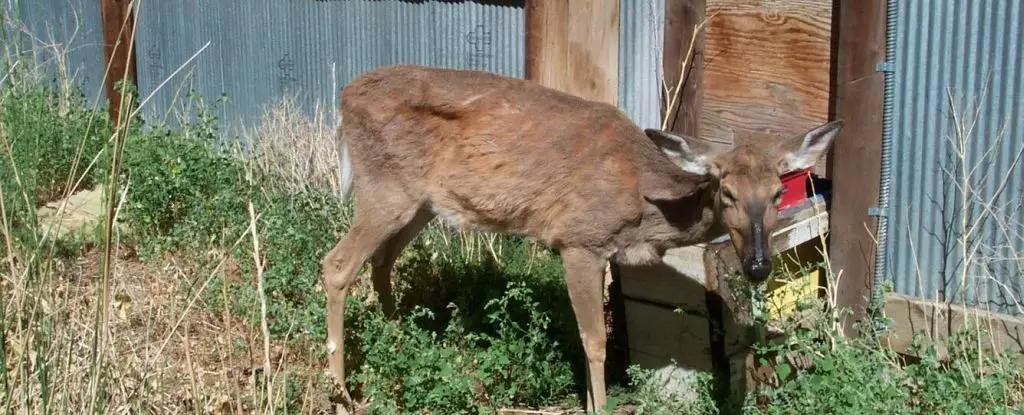A recent medical case report has raised concerns about the transmission of chronic wasting disease from deer to humans. The report highlights the deaths of two hunters who consumed venison from deer infected with chronic wasting disease, also known as “zombie deer” disease. The University of Texas medical team revealed that a 72-year-old man and his friend, who were both members of the same hunting lodge, died after presenting with symptoms similar to prion disease. The post-mortem examination confirmed that the second patient had died of Creutzfeldt-Jakob disease, a fatal prion condition. This rare occurrence suggests that chronic wasting disease may have crossed over to humans, posing a potential public health threat.
Prion diseases, such as Creutzfeldt-Jakob disease, are characterized by the misfolding of proteins in the brain, leading to rapid deterioration and death. These misfolded proteins can spread and induce further misfolding in neighboring proteins, creating a cascade effect of dysfunction. The resulting symptoms mimic a form of accelerated dementia, ultimately proving fatal for the patient. Diagnosing prion diseases in living individuals is challenging due to the lack of immune response and definitive clinical markers.
Chronic wasting disease primarily affects animals like deer, elk, and moose, with potential transmission through bodily fluids such as blood and saliva. Research has demonstrated the ability of the disease to infect animals with human genetic material in laboratory settings, raising alarm about its zoonotic potential. Despite the known risks, a significant number of infected animals are consumed annually, highlighting the need for greater public awareness and preventive measures.
The case report does not definitively attribute the deaths of the two hunters to chronic wasting disease, leaving room for speculation about the source of their illness. While prion diseases can arise spontaneously, the presence of chronic wasting disease in wild and farmed deer populations across North America necessitates thorough investigation and vigilance. The medical community stresses the importance of understanding the potential risks associated with consuming CWD-infected deer and its broader implications for public health. The emergence of clusters of sporadic CJD cases in regions with confirmed CWD-infected deer populations underscores the urgent need for cross-species prion transmission research.
The interplay between chronic wasting disease in animals and its possible transmission to humans underscores the complex landscape of zoonotic diseases. The medical fraternity must remain vigilant, conduct further research, and educate the public about the risks of interacting with infected wildlife. Addressing the potential consequences of prion diseases crossing species barriers requires a comprehensive and collaborative approach to safeguarding human health.


Leave a Reply